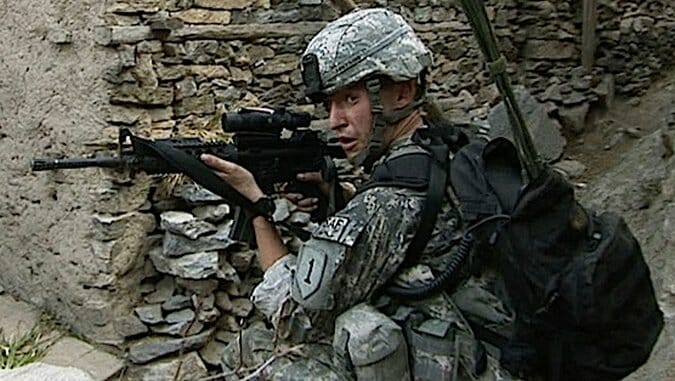Korengal

From mid-May 2007 through the summer of the following year, Sebastian Junger and his colleague Tim Hetherington chronicled the deployment of a platoon of American troops in a remote and notoriously deadly Afghanistan valley. The resulting experiential travelogue of war reportage, 2010’s Restrepo, picked up a Grand Jury Prize at the Sundance Film Festival and was nominated for an Academy Award for Best Documentary. The follow-up, Korengal, comes three years after Hetherington was tragically killed covering the civil war in Libya, and builds on the psychological perspicacity of its predecessor, delving in a very simple and direct way into what war and its aftereffects feel like.
Korengal takes its title from the aforementioned rugged, six-mile-long valley, a key Taliban supply route in the northeastern portion of Kunar Province, near the border with Pakistan. Following the same soldiers from Restrepo, from the Second Platoon of the 503rd Infantry Regiment and the Combat Team of the 173rd Airborne Brigade, the movie intercuts formal interviews after the men have cycled out of their year-long tour with more conversational material and other footage from the ground. In doing so, Korengal provides a view of the edginess the soldiers’ environment engenders—in many ways human bait for Taliban insurgents, they would be “contacted,” or fired upon, more than 270 times in a year—shot through with suspicion about even the placement of every rock (is that natural erosion, an IED or a new, slightly tread path?) on their frequent foot patrols down into neighboring villages.
-

-

-

-

-

-

-

-

-

-

-

-

-

-

-

-

-

-

-

-

-

-

-

-

-

-

-

-

-

-

-

-

-

-

-

-

-

-

-

-








































